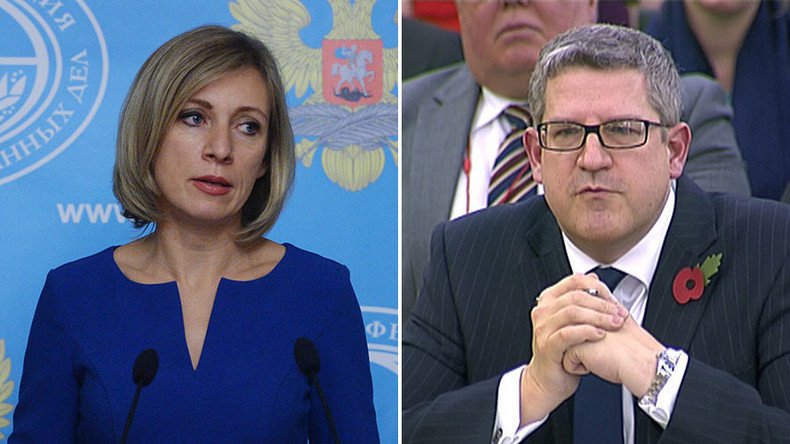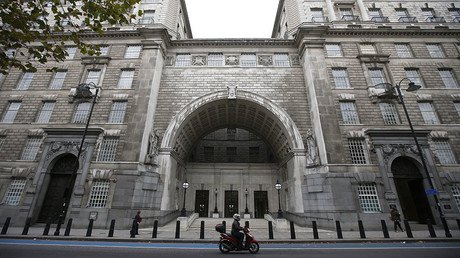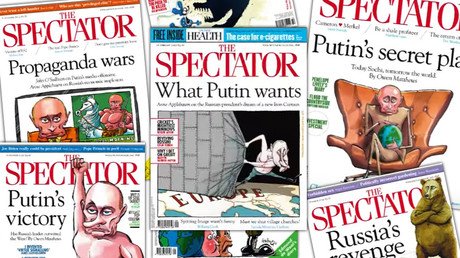‘Is Boris Johnson also a Kremlin puppet?’ Moscow asks UK spy chief

After MI5 chief Andrew Parker accused Moscow of using underhanded tactics to destabilize Britain, the Russian Foreign Ministry’s Zakharova hit back, asking if he also sees “the hand of the Kremlin in the appointment of Boris Johnson as head of the Foreign Office?”
In the first interview given by an MI5 chief in the 107 years of the spy agency’s history, Parker spoke to the Guardian about an “increasingly aggressive” Russia, which uses “a whole range of state organs and powers” to achieve its ends, including “propaganda, espionage, subversion and cyber-attacks.” Parker then went into vague descriptions of Russian actions in Syria and Ukraine, but offered no concrete evidence of the “high-volume” computer activity he spoke of.
Hours later, the Russian Ministry of Foreign Affairs’ spokeswoman, Maria Zakharova, said in a Facebook post that she had been asked by the Guardian to comment on the allegations. She kept it short.
“I told the Guardian that I would like to ask the MI-5 chief… a clarifying question: ‘Does he also see the hand of the Kremlin in the appointment of Boris Johnson as head of the Foreign Office?’”
Her words came shortly after Kremlin spokesman Dmitry Peskov dismissed Parker’s accusations on Tuesday, asserting that they “do not correspond to reality,” while adding that “until someone produces proof, we will consider those statements unfounded and groundless.”
The Russian embassy in London also reacted to Parker’s comments in a tweet saying it was “saddened to see a professional trapped to [sic] his own propaganda-created world.” The post included a poster for a 1966 war comedy, The Russians Are coming, The Russians Are Coming.
Director General of MI5 Parker interview for @Guardian: saddened to see a professional trapped to his own propaganda-created world pic.twitter.com/kw5QnUrzHq
— Russian Embassy, UK (@RussianEmbassy) November 1, 2016
Parker’s interview with the Guardian came shortly after the House of Lords considered a controversial investigatory powers bill on Monday that would grant the UK government unbridled access to citizens’ personal data and enable the country’s spy agencies to legally conduct bulk communications surveillance, which they say is needed to curtail terrorist attacks.
Parker defended the bill in the interview, claiming it provides a balance between privacy and security, while emphasizing that state actors and hack attacks are a bigger threat to the UK than Islamic terrorism.
The new round of sabre-rattling against Russia has recently taken on a cyber-attack spin since Washington began alleging that Moscow was behind the hacking of the Democratic Party’s computer servers, purportedly in order to derail faith in the American political system and disrupt next week’s presidential election.
Although absolutely no evidence has been produced to back the sensational claims, the accusation has led to a flood of bombastic allegations and a frenzied fears from British and American politicians characterizing Russia as a cyber-threat. It may have also led to UK bank NatWest informing RT that it was closing the Russian media outlet’s UK accounts.














